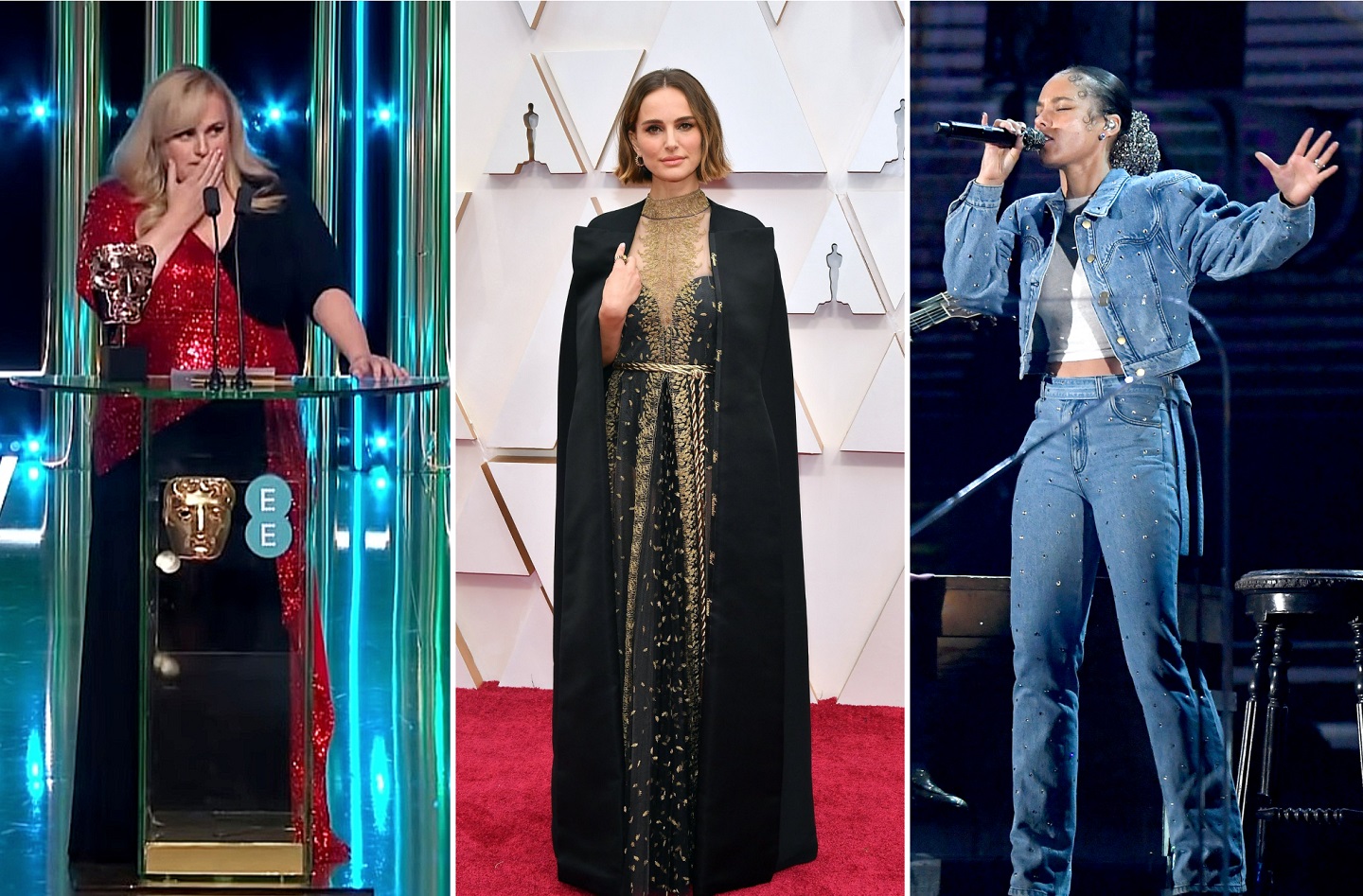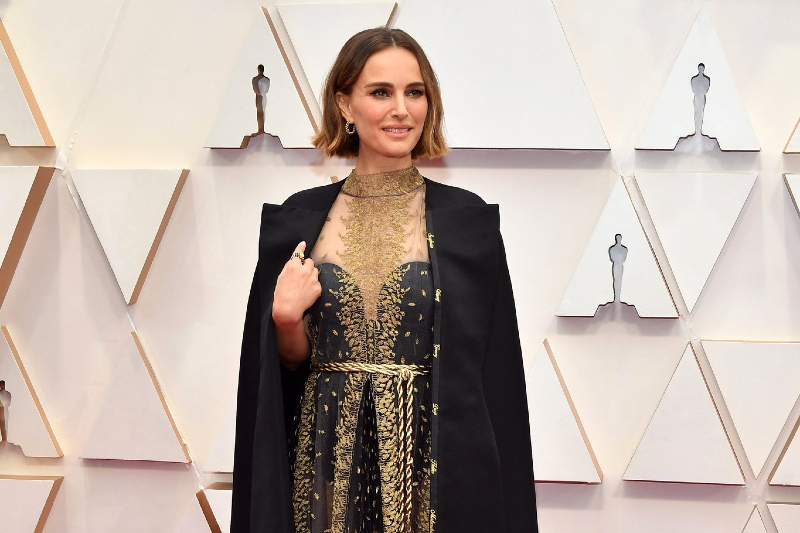
Rebel Wilson, Natalie Portman and Alicia Keys took a stand for female recognition at the Baftas, Oscars and Grammys (Photo: British Academy of Film and Television Arts; Amy Sussman/Getty Images; Kevork Djansezian/ Getty Images)
Actress Natalie Portman made more than just a fashion statement at the 92nd Academy Awards this year. Clad in a floor-length custom-made black and gold ensemble, Portman graced the Oscars’ red carpet bearing the names of eight female film directors – none of whom were nominated for Best Director — embroidered on the fold of her Dior cape.
“I wanted to recognise the women who were not recognised for their incredible work this year in my subtle way,” the actress told the Los Angeles Times. Portman paid tribute to Lorene Scafaria (Hustlers), Lulu Wang (The Farewell), Greta Gerwig (Little Women), Mati Diop (Atlantics), Marielle Heller (A Beautiful Day in the Neighborhood), Melina Matsoukas (Queen & Slim), Alma Har’el (Honey Boy) and Céline Sciamma (Portrait of a Lady on Fire).
natalie_portman_oscars_red_carpet.jpg

For the second year in a row, the Oscars had no woman among its nominees for the top award, even though Gerwig’s critically acclaimed Little Women was in the running for six other awards. Bong Joon-Ho, the director for Parasite, eventually took home the award.
Bong’s historic win is long-awaited acknowledgement for Asian film and filmmakers. Parasite also won Best Picture, International Feature Film and Writing (Original Screenplay). The comedy thriller became the first non-English language film in Oscar history to win Best Picture and the first South Korean film to be nominated for International Feature Film.
The Academy’s best director nominees, Martin Scorsese, Sam Mendes, Bong, Todd Phillips and Quentin Tarantino, were the same contenders for the British Academy of Film and Television Arts (Bafta) awards just a week ago.
At the Baftas, Australian actress and comedienne Rebel Wilson poked fun at several controversies, including the British royal family, the coronavirus pandemic, the failure of her latest film, Cats, and the lack of female representation in the best director category in a gag-filled speech. “I look at the exceptional, daring talent nominated in this category and I don’t think I could do what they do,” quipped Wilson. “Honestly, I just don’t have the balls.”
Female artists being sidelined is also a point of contention in the music world. In January, members of the Recording Academy were criticised for the lack of female nominees for Producer of the Year, among other allegations of sexism.
During the Grammys show, host Alicia Keys, backed by Alabama Shakes’ Brittany Howard, performed her new anthemic track, Underdog, a song about resilience. The same song is featured in a poignant clip created by She Is The Music (Keys’ initiative to create change for women in music) in collaboration with the Recording Academy and the Diversity & Inclusion Task Force for the #WomenInTheMix anniversary.
According to University of Southern California Annenberg, only 2% of popular music was produced by women in 2019 and the choral arrangement of Underdog reflects the disconcerting statistic. In the video, a 50-person, all-female choir performs the chorus together, but as the video progresses, the women sit down and stop singing, until only one —the 2% —is left to sing alone.
The lack of female recognition in major award shows is not startling, but the fact that more women are speaking out about the inequality is a step towards the right direction. In USC’s latest Annenberg Initiative study, the number of female producers has increased from 2% to 5%. Although small, the figure is encouraging.
The Academy of Motion Picture Arts and Sciences remains old, white and male. Despite structural changes to its membership after 2016, which led to a notably more diverse slate of nominees in 2017, it looks like things are back to square one this year. Apart from Gerwig’s snub, only one performer of colour, Cynthia Erivo from Harriet, was nominated across all four acting categories.
It is true that the responsibility to diversify lies with the Academy. Whenever awards season rolls around, key words such as inequality and lack of diversity spike, yet, the debate dwindles within weeks.
So what can we do? Practising equality and embracing diversity can bring about change. But to actively and consistently have this conversation is, perhaps, the only way to move the needle.


